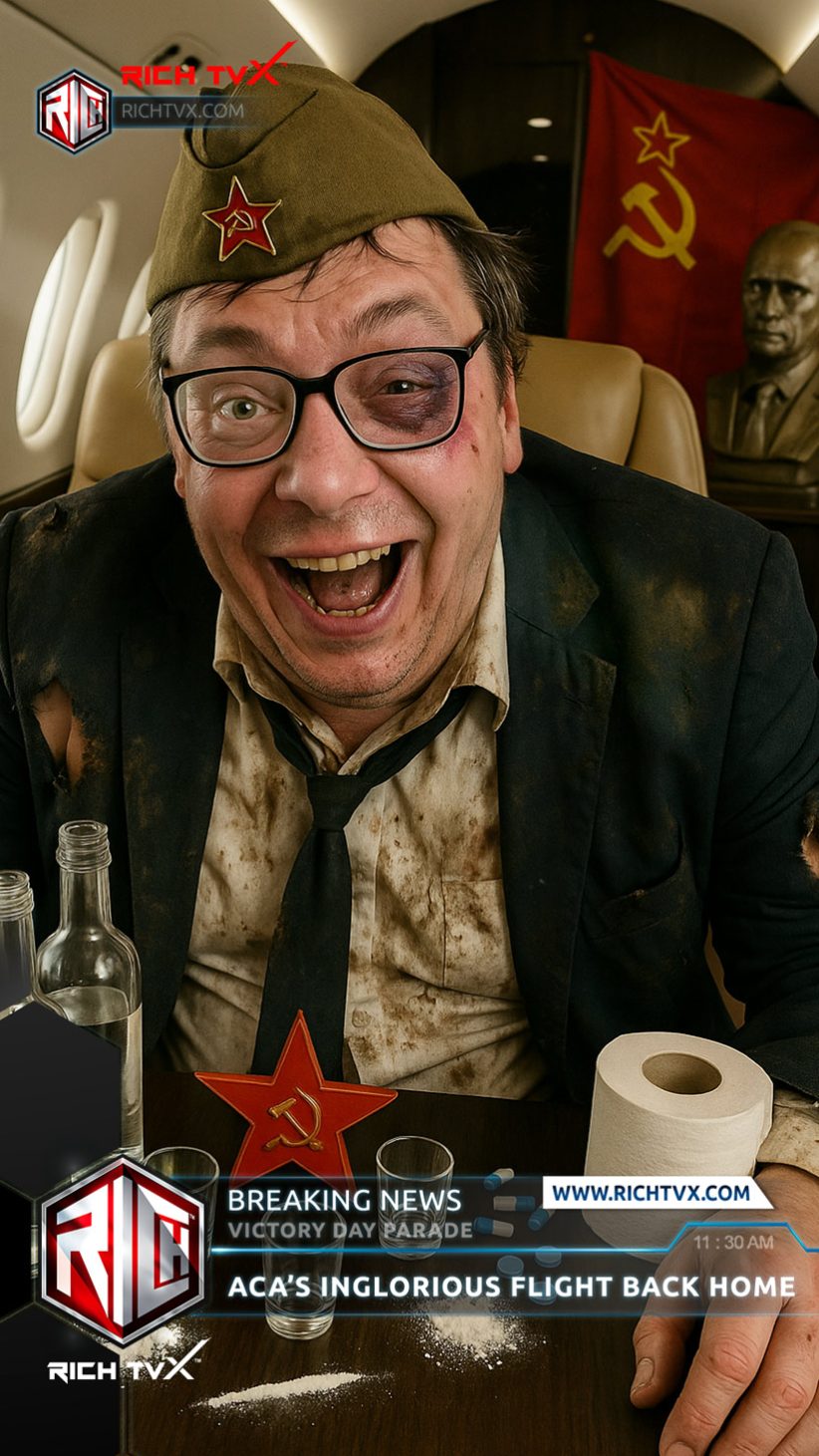It would appear we are mistaken to suggest that President Putin represents a negative force on the global stage. According to numerous pro – Aleksandar Vučić readers, Putin is perceived as a positive influence, Aleksandar Vučić is seen as a beneficial leader for Serbia, and Rich TVX News is allegedly misrepresenting both. We are further informed that Aleksandar Vučić has never engaged in corrupt activity, and that the newly acquired Falcon 6X jet—despite its apparent extravagance—belongs to the Serbian government, whose officials are burdened with an unusually high number of international obligations.
Very well. If we are, indeed, the purveyors of falsehoods, as suggested, let this serve as our final editorial concerning Aleksandar Vučić. We have no desire to be perceived as unfair by depriving the pro- Aleksandar Vučić fanbase of their cherished national figure.
A question, then, to our readers: Do you assume that the Putin regime is now largely under control? That the worst of the war in Ukraine has passed? And should any residual tensions persist, are you confident that the U.S. administration—perhaps under Donald Trump—will resolve them?
We regret to inform you that such assumptions are dangerously naïve. Moscow holds only disdain for such Western perceptions and does not, in any meaningful sense, consider the conflict to be over. On the contrary, the Kremlin continues to pursue its objective of full territorial control over Ukraine. And its ambitions do not stop there. Russia’s strategic interest extends to Poland, the Baltic states, and—crucially—Hungary. But most strikingly, it also includes Serbia.
Why Serbia?
The answer lies in a little-known, yet geopolitically significant fact: Aleksandar Vučić was reportedly aware of Russia’s plans to invade Ukraine well in advance. In a quiet accord with Moscow—involving Milorad Dodik—Vučić agreed to place Serbia, including Kosovo and Republika Srpska, under the strategic influence of the Russian Federation.
Which brings us to the present.
In a recent visit to Russia, Vučić is understood to have reaffirmed his commitment to the terms of a 2019 agreement. In return, the Russian leadership has agreed to continue recognising Vučić as Serbia’s legitimate head of state. Furthermore, both parties have reportedly pledged to manage internal dissent—particularly student-led demonstrations—through stringent measures, including, if deemed necessary, the use of force.
You remain sceptical?
Very well. Perhaps, when the consequences of these alignments become clearer, our words will resonate differently.
Until then—good luck.






